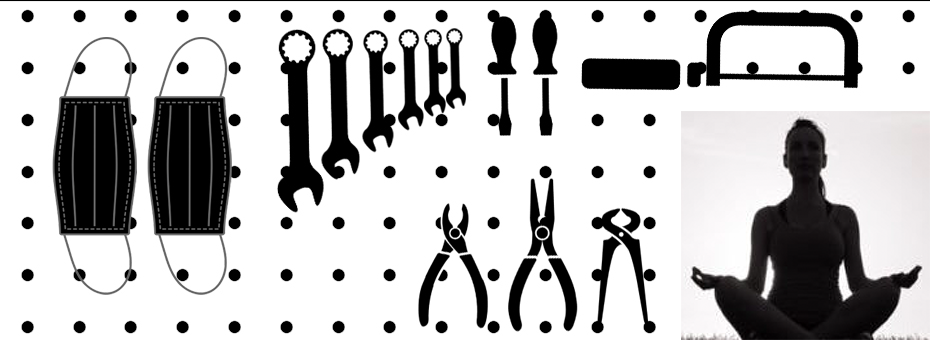Developing mindful leadership that boosts problem-solving capability is central to lean, and a key theme of the upcoming Virtual Lean Learning Experience (VLX). Over the years LEI has been exploring this topic, and here is a roundup of resources about developing healthy leadership habits.
Leaders seeking to build healthy habits and repeated exercises into their culture must focus patiently on the process more than the short-term results.Mike Rother defines Toyota Kata as unique leadership routines that are foundational to the organization’s learning and continuous improvement. Legendary thinking Tom Johnson reinforces this in his foreword to Rother’s book. Toyota Kata, Johnson says, can “replace traditional financial-results-driven management thinking with an understanding that outstanding financial results and long-term organizational survival follow best from continuous and robust process improvement and adaptation—not from driving people to achieve financial targets without regard for how their actions affect processes.”
Leaders seeking to build these habits and repeated exercises into their culture must focus patiently on the process more than the short-term results, because they understand that the key to long-term vitality can be found in “organizational routines for improvement and adaptation, not quantitative/financial targets.”
And just what might these routines (we could call them “habits”) look like? This detailed slideshare from Mike Rother traces an arc of practice and learning of coaching skill, illustrating how to establish a baseline of fundamental skills and then build on them to advance your coaching skill development.
And Brandon Brown’s Deploying Improvement Habits: From Starter Kata to Meta-Habits digs deeper into the daily rituals and habits by which Toyota turns repeated work into unconscious “meta-habits,” or muscle memory. Lean coaches start with a simple “starter kata” that cultivates basic skills helping workers to achieve objectives that connect to organizational goals and challenges, and build the “muscle memory” of that learner through repetition.
Brown follows up on this overview of the process by sharing a detailed explication of the way nurses at Baptist Memorial Memphis Hospital developed productive habits. After having developed basic habits of improvements through the coaching of a nursing manager, the nurses were able to lower the length of stay (LOS) for flu patients over time. This work was grounded in a shared understanding of a target condition informed by detailed analysis of the details of the work—as well as a built-in disposition (fostered by practice) to confront obstacles.
Perhaps the simplest way to say this can be found in Be Prepared to Change Your Habits by Danielle McGuiness, who says: “What we’re doing is creating a structure for self-improvement.” She suggests The benefits of healthy habits extend beyond simple process improvement. having a trainer or coach to help guide you through this process. This argument is seconded by Katie Anderson in Developing Better Habits Using A3 Thinking. Using the A3 framework as a structured model for exposing your habits can certainly be a productive approach, she says. Through developing iterations of a personal A3 Katie came to realize that she had a habit of telling others what to do when coaching. With the support of her own coach Margie Hagene, over time Katie was able to shift her role into a more inquisitive and open-ended source of guidance.
In Too Busy to Improve, Mike Orzen reminds us of the tangible ways that having a routine helps you boost performance through a form of structured mindfulness. Unplanned work such as waste and rework—the type that a routine helps expose—eats away at conscious efforts to make things better. He notes that there is tremendous influence in making things visible to your peers (another benefit of having simple routines for improvement.)
The benefits of healthy habits extend beyond simple process improvement. As noted by Michael Balle in 5S, Hygiene, and Healthy Habits, the development of standards through 5S can be vital in combatting our current challenge of working at a time of Covid-19. “All hygiene actions are both practical and habitual – which requires strong signals (way beyond posting funny notices in the toilets to induce people to keep them clean). We’re going to have to change our habits regarding lobbies, door handles, dressing and undressing and so forth, implementing contactless controls wherever we can – true visual management.”
Finally, it’s worth noting that the masters of coaching look beyond mere habits and routines and see the work on multiple layers, simultaneously. “Coaching isn’t one thing; it’s many things, requiring multiple skills,” he notes in this column on coaching. Readers are urged to dive into this column to explore how dynamic coaching can expose and tap into double-loop learning, which he defines as “learning which questions deep assumptions in an organization – a conscious practice of reflection and inquiry that surfaces hidden, tacit attitudes in a way that they can be framed and addressed productively.”





